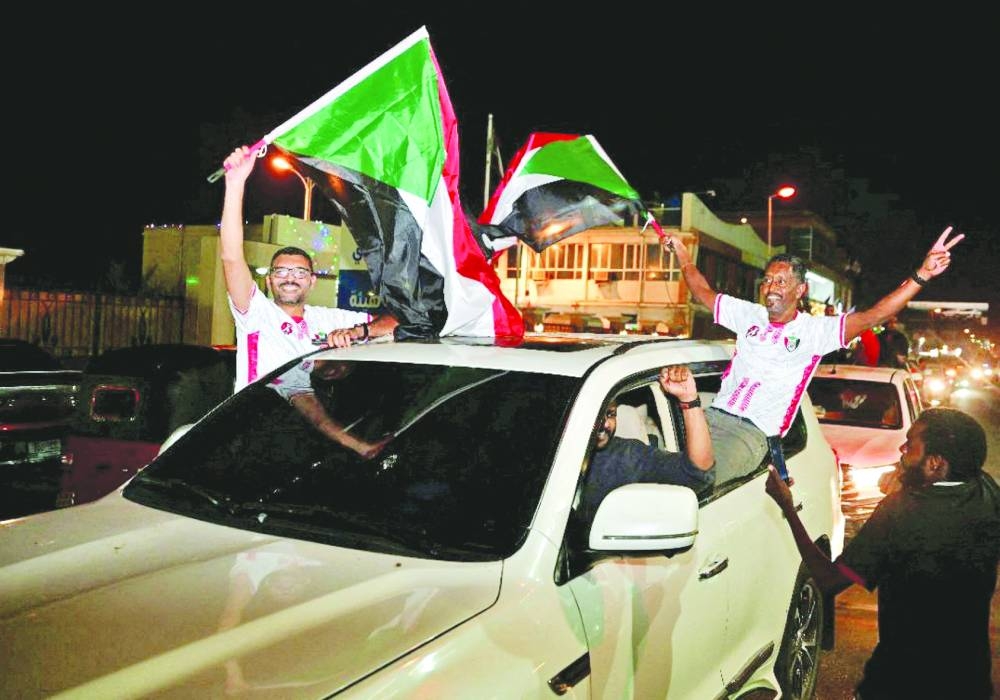Rebuilding Sudan is an extraordinarily complex endeavour, demanding a holistic, multi-pronged approach. Key policies must restore security, revitalise the economy, foster social comprehensive reconciliation, and rebuild democratic governance.
While the challenges are formidable, the right policies — supported by effective international co-operation — can provide a blueprint for long-term peace and prosperity. Reconstruction involves not only repairing physical infrastructure but also addressing the root causes of conflict, building inclusive institutions, and restoring trust between citizens and their government.
If properly designed and implemented, these policies can lay the foundations for a stable, prosperous, and peaceful future.
To begin with, one might argue that international support will be crucial to Sudan’s reconstruction, providing the financial and technical resources necessary to rebuild the country’s war-torn infrastructure. Aid and expertise from international organisations will be vital to catalysing recovery. Multilateral institutions, including the UN, the World Bank, and regional bodies, must co-ordinate efforts and provide funding for infrastructure, humanitarian relief, and economic recovery.
Beyond financial assistance, international actors should play a diplomatic role — encouraging peace agreements, promoting trade, and facilitating Sudan’s Comprehensive Reconciliation. However, international assistance must be delivered in close collaboration with the Sudanese government to ensure policies align with the needs and aspirations of the people.
Aid must also be transparent and accountable; ensuring resources are used effectively requires robust oversight mechanisms and a commitment to good governance. Corruption, if allowed to take root, could undermine the entire reconstruction effort and sow the seeds of future conflict.
Our horrific war has left devastating scars — not just on the physical landscape, but on Sudan’s social fabric. As the conflict subsides, rebuilding must go beyond restoring infrastructure and order, extending to re-establishing the political, economic, and social foundations needed for lasting peace and stability.
Our homeland’s reconstruction is a multifaceted challenge, with government policies playing a pivotal role in shaping outcomes. These policies must address a broad range of issues, from restoring security and revitalising the economy to promoting comprehensive reconciliation and rebuilding public trust. A holistic and inclusive approach is essential for sustainable recovery.
It is important to note that restoring security and re-establishing the rule of law must be the immediate priority. The recent conflict has nearly collapsed state institutions, created power vacuums, and left citizens vulnerable to lawlessness, insurgency, and further violence.
One of the most pressing policy steps is the demobilisation, disarmament, and reintegration (DDR) of former combatants. This involves dismantling armed groups, collecting weapons, and offering support — such as alternative livelihoods, psychological counselling, and reintegration programmes — to ex-soldiers. Effective DDR initiatives reduce the likelihood of violence returning and play a crucial role in stabilising the post-war environment.
Indeed, reforming the security sector is equally essential. This requires professionalising the police and military, ensuring they are accountable to civilian oversight, and preventing the recurrence of human rights abuses. Likewise, restoring a functioning judicial system is critical for delivering justice for war crime victims and maintaining public trust in state institutions.
What’s more; the economic toll of this devastating war is severe. Rebuilding agriculture, industry, and services is key to creating jobs and ensuring resilience against future shocks. Policies must also address poverty and inequality, which undermine stability and hinder social cohesion. Roads, bridges, schools, and hospitals have been destroyed, while industries and local businesses face an uncertain future.
Economic recovery must focus on both short-term stabilisation and long-term development goals.
In the short term, efforts must prioritise the restoration of essential services and the rebuilding of critical infrastructure.
The international community must play a central role, providing loans or grants to support these efforts. Investment in sectors such as energy, telecommunications, and transportation is crucial to restarting economic activity and creating jobs.
Over the longer term, economic policies should focus on diversifying the economy, attracting foreign investment, and fostering sustainable growth.
Social Comprehensive Reconciliation is equally vital. The armed conflict has exacerbated divisions along ethnic and political lines, and comprehensive reconciliation must be a cornerstone of the recovery agenda. This requires measures to foster unity, healing, and coexistence between different tribes, ethnicities, and regions.
Truth and reconciliation commissions will be essential in confronting the legacy of violence, providing victims a platform to voice their suffering and ensuring accountability for atrocities. Along with this the education system must also be reformed to promote inclusivity, peacebuilding, and respect for diversity.
For Sudan’s children and youth, access to education offers a critical path out of poverty and a chance to rebuild their lives. Furthermore, addressing the psychological scars of the conflict is equally important.
Mental health support programmes will be essential for both individual recovery and broader social stability.
Providing care for trauma victims and community-based mental health services is vital to prevent the recurrence of violence and social unrest. Tackling these issues early will help lay the foundation for a more harmonious and unified future.
Nevertheless, rebuilding political institutions will be one of the most challenging tasks of the recovery process. Instability and conflict have dismantled political systems, exacerbated corruption, eroded trust in state institutions, and created an environment of chaos. A key policy will be the restoration of legitimate, accountable governance that can represent all segments of society.
Ultimately, dialogue on a permanent constitution is essential to ensure that the political system is inclusive and responsive to citizens’ needs. Power-sharing arrangements, electoral reforms, federalism, or decentralisation may be necessary to ensure minority groups are fairly represented and have a stake in the country’s future.
International support will be invaluable during this phase. Peacekeeping missions or technical assistance from multilateral organisations can help stabilise the political environment and facilitate the transition to democratic governance. Strengthening local governance will also be critical, as empowering local authorities ensures that services are delivered efficiently and that citizens feel their voices are heard. — [email protected]

Sudanese citizens celebrate on a street in the capital Khartoum, in Port Sudan.
